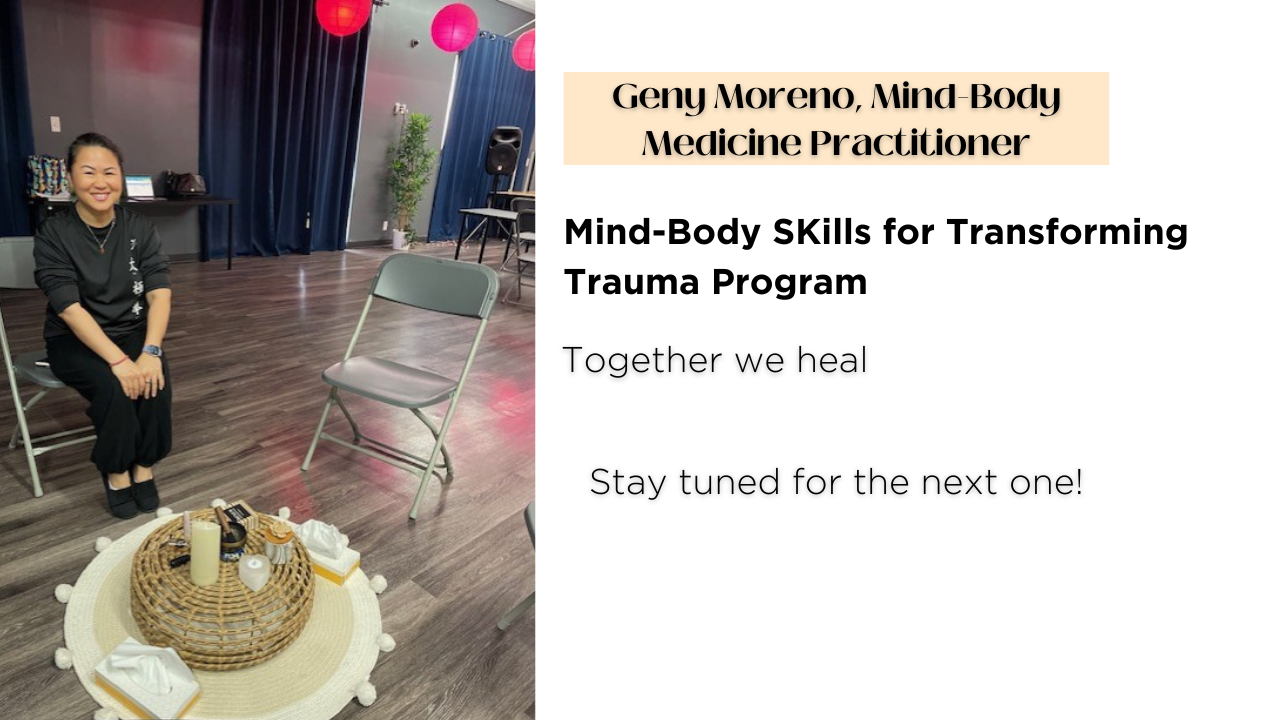Blog
Ask the Expert: Posture, Fascia and Function with Dr. Tiffany Poole and Kristie Gatto

In our quest to improve overall wellness, we host a series called "Ask the Expert," where each month we introduce a new guest speaker to share their expertise on various health topics. This time, our spotlight focused on the fascinating interplay of posture, fascia, and function, with Dr. Tiffany Poole, a chiropractor, and Kristie Gatto, a certified myofunctional and speech therapist, leading the discussion.
Understanding the Connection: Posture, Fascia, and Health
The session began with an in-depth exploration of the integral role fascia plays in our body. Often overlooked, fascia is a band or sheet of connective tissue, primarily collagen, that sits beneath the skin and wraps organs, muscles, and other structures. This connective tissue not only shapes our anatomy but also facilitates bodily functions and can influence our overall health and posture.
The Expert Insight
Dr. Tiffany Poole emphasized the structural alignment's role in health, highlighting how a misalignment can
...Transforming Trauma: A Journey of Healing and Community

This week at TCLM, our mind-body medicine practitioner Geny Moreno is wrapping up her transformative six-week "Mind-Body Skills for Transforming Trauma" group program, and the results have been nothing short of extraordinary.
A Holistic Approach to Healing
Throughout this powerful journey, Geny has guided attendees through a comprehensive toolkit of mind-body healing modalities. Participants have explored genograms to understand family patterns, engaged in somatic release techniques to unlock stored tension and emotions, and learned to combine breath work with movement for enhanced self-regulation and coping strategies. These evidence-based approaches address trauma not just mentally, but as it lives within the body itself.
One of the most powerful aspects of the program has been the moderated group sharing sessions. In these sacred spaces, Geny has created an atmosphere of safety and non-judgment where attendees can hold space for one another, sharing vulnerably and authentically. ...
Hormonal Health: 7 Surprising Ways Women Disrupt Their Hormonal Balance

Hormones are the body's chemical messengers, orchestrating everything from metabolism and mood to reproduction and sleep. For women especially, maintaining hormonal balance is crucial for overall wellbeing. Yet many of us unknowingly engage in daily habits that throw these delicate systems into disarray.
Understanding what disrupts your hormonal balance is the first step toward reclaiming your health and vitality. In this post, we'll explore seven common factors that can wreak havoc on women's hormonal systems—and what you can do about them.
1. Sleep Deprivation: The Silent Hormone Disruptor
That late-night Netflix binge isn't just making you tired—it's throwing your hormones into chaos. Quality sleep is fundamental to hormonal regulation, particularly for cortisol (your stress hormone), insulin (your blood sugar regulator), and reproductive hormones like estrogen and progesterone.
When you consistently shortchange your sleep:
- Your hunger hormones get confused (hello, ghrelin ...
How our Upbringing can Shape our Healing Experiences

In the journey of healing, understanding the deep-seated impact of family dynamics and emotional patterns is crucial. We often find that trauma isn't just what has happened to us but sometimes what was missing during our formative years, like emotional neglect or absence of support. With this in mind, Geny Moreno, a mind-body medicine practitioner, is excited to introduce our upcoming Mind-Body Healing Groups designed to help you navigate and transform your trauma, starting next week.
Understanding Family Dynamics and Emotional Patterns
Healing begins with awareness. In the words of renowned speakers on the subject, the impact of subtle neglect and lack of emotional expression during childhood can profoundly shape our adult relationships and behaviors. This is especially true for those of us who suppress emotions tightly or express them with difficulty. These behaviors can stem from early interactions with caregivers who were not fully present or supportive, leaving a need for emotio...
Mind-Body Skills for Transforming Trauma Group Coaching Program

In today’s fast-paced world, it's easy to overlook the toll that unprocessed trauma and stress can take on our minds and bodies. But healing is possible, especially when we embrace a holistic approach that addresses the mind and the nervous system. We invite you to join our transformative mind-body groups, led by the expert guidance of Geny Moreno, a dedicated mind-body medicine practitioner.
Meet Geny Moreno: Your Guide to Mind-Body Wellness
Geny Moreno brings a wealth of knowledge and practice to the table, emphasizing the connection between our thoughts, emotions, and physical well-being. Geny's unique approach incorporates tools such as Tai Chi, Qigong, meditation, and somatic release—all of which are designed to help participants manage stress and process emotions in a healthy, supportive environment.
Understanding Trauma: Big T and Little t
Trauma can be both blatant and subtle—referred to as big T and little t traumatizing experiences. Through group interactions, Geny of
...Spiritual Bypassing: Emotional Avoidance Disguised as Spirituality

In our pursuit of personal growth and well-being, spirituality often plays a significant role. It can provide us with a sense of transcendence and connection beyond our immediate reality, resonating across various practices, whether through Eastern philosophies or Christian traditions of surrendering to God. Yet, as with any powerful tool, it's essential to understand its appropriate use. This understanding brings us to the concept of spiritual bypassing.
What is Spiritual Bypassing?
Spiritual bypassing is a phenomenon where individuals rely heavily on spiritual practices or ideologies to sidestep personal responsibility. This can become problematic when spirituality becomes a means of avoiding necessary actions on a more human, practical level.
While spirituality can offer profound support and meaning, overreliance on it can hinder personal growth and healing. For instance, some might lean on prayer or meditation exclusively, while neglecting therapy or medical treatment essential ...
MTHFR Gene: Do I need to know what's in my Genes?

Understanding MTHFR: Personalized Health at Texas Center for Lifestyle Medicine
At Texas Center for Lifestyle Medicine (TCLM), we believe in addressing the root causes of health issues to provide comprehensive, personalized care. One question we are often is asked is whether or not we should be concerned about MTHFR gene and its impact on overall health. MTHFR may impact various health pathways related to sleep quality and vitamin metabolism.
What is MTHFR?
MTHFR stands for methylenetetrahydrofolate reductase, an enzyme crucial for various bodily functions. This enzyme plays a vital role in:
-
Converting folate into its active form for the body to use effectively
-
Processing amino acids
-
DNA production and repair
-
Methylation processes essential for cellular function (methylation is one method that our bodies use to express genes. Gene expression and silencing translates to turning off or on inflammatory pathways. Such pathways may be associated with risk of develo
...
Exploring the Comprehensive Benefits of Pelvic Floor Physical Therapy

Pelvic floor physical therapy (PT) is a specialized form of rehabilitation that focuses on the pelvic floor muscles, playing a crucial role in alleviating a variety of symptoms and improving overall quality of life. This therapy can address bladder control issues, chronic constipation, prolapse, posture-related pain, circulation issues, and more. While often associated solely with the pelvic area, pelvic floor PT involves a holistic approach that considers the entire body's functionality and alignment.
Understanding Pelvic Floor PT Benefits
Bladder Control and Pain Management
Pelvic floor PT is particularly beneficial for individuals facing bladder problems. Whether it's involuntary leakage during activities like coughing and sneezing or frequent, sudden urges to urinate, these symptoms can often be traced back to pelvic floor dysfunction. Additionally, some individuals experience bladder pain mimicking urinary tract infections without any actual infection present, underscoring th
...Getting Unstuck: Integrating Body and Mind

Exploring the Path to Healing: Integrating Body and Mind
In today's fast-paced and intellectually-driven world, the balance between the left brain's analytical nature and the right brain's emotive and creative powers is often overlooked. This disparity becomes apparent in the process of healing—whether from trauma, chronic pain, or emotional distress—an endeavor which demands a holistic approach that transcends mere intellectualization.
Left Brain vs. Right Brain Healing
Our intellect, predominantly governed by the left brain, thrives on logic and analysis. While it serves engineers and scientists well in their craft, it has its limitations when it comes to emotional healing. Healing is not a process that can be boiled down to facts and theories studied in books or podcasts. Instead, it is an active, bodily pursuit—one that demands movement, feeling, and release.
Understanding the Impact of Fear
Fear is a common emotional response linked to trauma. It paralyzes us, inhibiting
...Empowering Your Health Journey: Our Group Visit Programs

At our clinic, we believe in the power of community healing and expert guidance. Our innovative group visit programs bring together individuals facing similar health challenges, creating a supportive environment where knowledge, experiences, and strategies are shared under the guidance of healthcare professionals and expert guest speakers.
A Comprehensive Approach to Wellness
Every week, our groups welcome expert speakers who bring fresh perspectives and deep expertise to our discussions. These collaborative sessions are designed to provide both educational value and practical tools you can implement in your daily life. Whether you're managing a chronic condition or seeking to better understand your health patterns, our programs offer a unique blend of professional guidance and peer support.
Our Specialized Programs
We currently offer focused group visits for several key areas:
Dysautonomia and POTS Management
Our dedicated sessions help participants understand and navigate th...
